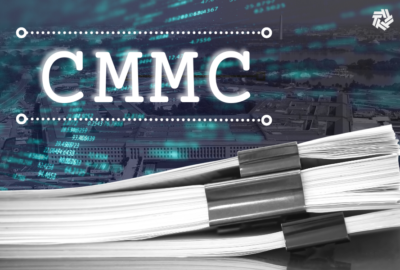After three protests of the same award, this national security contractor still lost in court
"The crux of the argument was about solicitation formatting requirements," Haynes Boone procurement attorney Zach Prince said.
Three times the CIA awarded a contract for medical services to the same company. Three times the losing bidder protested. Finally a court said the protestor might be right. But it let the CIA go ahead with the original award anyway. Haynes Boone procurement attorney Zach Prince shared lessons learned on the Federal Drive with Tom Temin.
Learn more about your ad choices. Visit podcastchoices.com/adchoices
Interview transcript:
Tom Temin I guess this protester was nothing if not persistent and ultimately right in some sense, and they still lost. Tell us more.
Zach Prince Yeah, that’s right. So this protest was going on for a while in many different iterations. So it started back in 2021 when the agency put out the RFP the first time, 2022. They got three offers. They made an award. The PGI continues to be the awardee, and there was quickly a protest. And then they took corrective action and there was quickly a protest. And that cycle continued until pretty recently.
Tom Temin And PGI was actually a company, Patriot Group International, and the company protesting was Assessment and Training Solutions Consulting Corp.
Zach Prince Yeah, that’s right. That’s right. That’s the shorthand that the court uses. So I’m falling into the pattern.
Tom Temin Sure. And what was the CIA exactly buying here?
Zach Prince You know, it’s a little bit vague and I don’t have the statement of work and it might well be classified, but they described it as international tactical and non tactical medical support services.
Tom Temin Yeah. Okay. Sounds like field doctors or something. Well, it could be anything. That’s what they could have said. But you don’t know what they’re actually doing. All right, well. So three protests. What were the grounds and why did it keep lingering like that?
Zach Prince The last protest at GAO, at least that GAO summarized, the crux of the argument was about ATC arguing PGI violated solicitation formatting requirements. So the argument was that PGI used a trick to shove more text in to its proposal than it was allowed. You know, these RFP is often contain very strict requirements or limitations for pages. You can only have X number of pages in this volume, X number of pages in that volume. And because they’re familiar with the tricks you can do to get more text in, the agency here, at least said it has to be 12 finds. And I think they indicated what the margins had to be in the line spacing. I mean, you can shove a lot of text in if you have no margins essentially, and lines that are under one rule. They said you can’t do any of that.
Tom Temin Microsoft Word goes down to, I think, eight point type, which is pretty darn small. So, yes, small margins, teeny type and close line spacing, you can get unlimited even in 6 or 7 pages.
Zach Prince Yeah, that’s right. So ATC argued that that’s what PGI did here, that there is an exception in the RFP for smaller font sizes for charts, graphs, tables and figures. And according to ATC, at least that was abused by PGI that they shoved a lot of explanatory text that really was part of their technical volume and their past performance volume into these supposed tables when they really weren’t supposed to be used for that purpose.
Tom Temin Boy, that is a highly technical grounds for protest. It wasn’t on the technical proposal. It wasn’t on the pricing. It wasn’t on the services offered, but the format of the bid.
Zach Prince Yeah, I mean, they had a lot of that other stuff too. I mean, you know, you file processor go typically, I don’t want to say most people take the kitchen sink approach. But you see a lot of those and go address those issues too. But it was much more as an afterthought because that wasn’t the core of the argument. Usually when you get to the point where you’re arguing that the agency’s technical evaluation was wrong, it’s often subjective and you’re likely to lose. So you want an objective ground that you can win on if you’re going to have a real hope and a protest.
Tom Temin All right. We’re speaking with Zach Prince. He’s a procurement attorney and a partner at Haynes Boone. But when it finally got to the final round of the court, that’s where the findings kind of got interesting.
Zach Prince Yeah. So the court started off by saying actually GAO is wrong. The RFP did not just give you carte blanche to put anything you want into a table and call it, you call it a table, you put a box around it and now you can do anything. With that, which GAO had essentially said that the text, the RFP, really did allow you to put whatever you want in those tables within certain pretty broad limitations. The court said, no, that’s not true. But it doesn’t matter because ETSE is complaining of something that it did. It did the same exact thing, just to a lesser extent, where it’s you shove the explanatory text in to suppose the tables, right?
Tom Temin So it used the proverbial nine point type instead of the eight point type and accused the other one. It’s kind of the pot calling the kettle black here.
Zach Prince That’s right. And the court used a whole bunch of analogies that had sought, including the part as the court said, the pot may choose to call the kettle black, but it’s a sure fire way to lose a case.
Tom Temin Right. So what what are the lessons learned here then, for bidders?
Zach Prince I have first is if you’re going to take a position as to the meaning of a solicitation, you have to be consistent. You can’t have your cake and eat it, too, to maybe mixed metaphors. But if you’re going to take the position that it only allows you to do certain things then stick with that in your proposal. Because otherwise if you complain later that another party did something else, you don’t have a basis to argue anything. The other point here though, that I thought was interesting, the court says, yeah, we’re agreeing with PGI and the government and it’s this case is done. But even if we didn’t, we still wouldn’t grant a injunction. We wouldn’t stop this procurement because this is national security and it’s at stake.
Tom Temin So national security almost overrides many common protest grounds.
Zach Prince It does, or at least it can. You get it at the court. They have to grant an injunction to stop performance, right? It’s not, you don’t get a mandatory stay of the procurement like you do with GAO. The court has to do this balancing test to decide if you get a stay. Usually the government just stays it anyway. It’s easier that way. You don’t waste time and money litigating whether an injunction is appropriate. But here they didn’t. The government didn’t agree to stay it, apparently. The court said with this balance, they set aside the fact that you are losing on the merits. Even if you had a real argument here, the public interest is clearly served based on a classified declaration that the CIA submitted to the court, at least, in favor of letting this continue. This is something the agency needs. National security is a stake. This has got to continue.
Tom Temin Well, one wonders what the court might have said if the grounds of the protest were not override of all in the court’s opinion. All right. Formatting and what font you used is a technical violation of the solicitation, but it’s not anything content wise. Suppose there had been an organizational conflict of interest in the winning bidder. Or something substantial like that, where there’s real ethics involved. Again, rhetorically, just wondering what the court might have decided in that case.
Zach Prince I suspect that the balance of interests would have been different. But it’s hard to say because this procurement has gone on for three years and apparently it was really quite significant for the government. They needed whatever it was that’s being vaguely described in this procurement quite badly. And so it might be the case that even if the agency had some real issues here, the court still would have said, no, we’re not going to enjoin action. But it’s hard to say because the public interest and trust in the procurement system or saving the taxpayer dollars and sure, you’re getting the best goods and services. I don’t know that that weighs more strongly, I think, in favor of an injunction. But that wasn’t the case here.
Tom Temin And there is the question too, if that the CIA said 12 point type, 1.5-inch spacing and one-inch margins, ten pages, maximum, whatever they said. I’m making that up. Then, you know, why did the all the parties not do that? And the CIA didn’t say, folks, we said 12 point type, 1.5 line spacing and one-inch margins, ten pages. Go back and give us again that.
Zach Prince Yeah, I think they had already gone back and redone enough things. They were not going to redo this, especially where both parties made the error that was being complained about.
Tom Temin Plus, if they have people lying in kinetic situations that need medical care. Again, there’s the overriding interest. Interesting case. Procurement attorney Zach Prince is a partner at Haynes Boone. Thanks so much.
Zach Prince Thanks for having me.
Tom Temin And we’ll post this interview with federalnewsnetwork.com/federaldrive. Subscribe to the Federal Drive wherever you get your podcasts. And this program note, be sure to register for day two of Federal News Network’s online Cyber Leaders Exchange. Hear the latest thinking from top federal cybersecurity practitioners from throughout government today at 1 p.m. here, the National Security Agency’s Christina Walter. Register now at federalnewsnetwork.com. Sponsored by Carahsoft.
Copyright © 2024 Federal News Network. All rights reserved. This website is not intended for users located within the European Economic Area.
Tom Temin is host of the Federal Drive and has been providing insight on federal technology and management issues for more than 30 years.
Follow @tteminWFED






